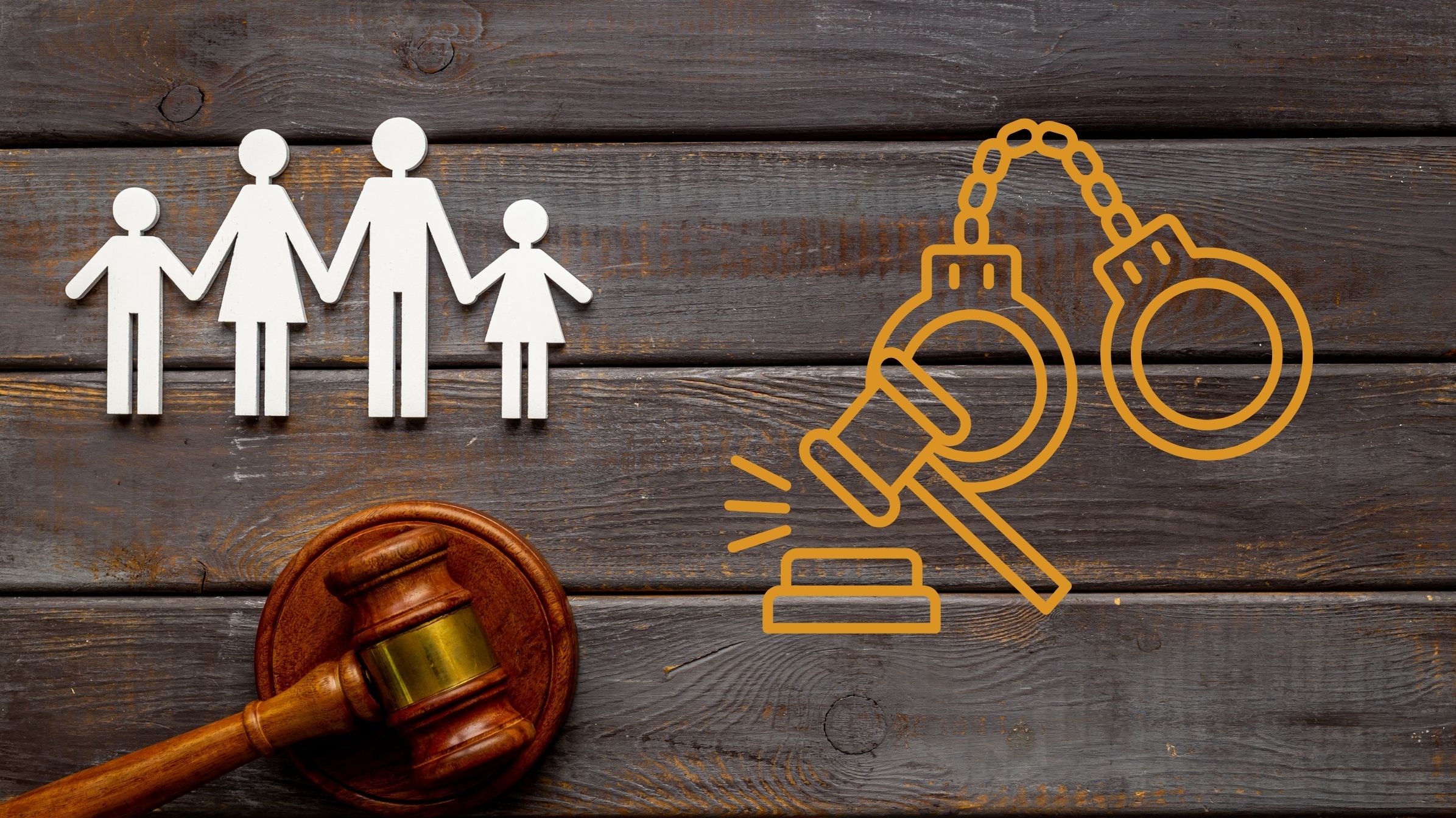Just like comparing surfboards to skateboards, criminal law and family law in Australia are worlds apart. Criminal law takes on an individual committing a criminal offence like theft, battery or sexual assault looking to seek punishment for an individual’s actions.
Meanwhile, family law dives into the deep end of family matters – think divorce and child custody – focusing on trying to resolve disputes and keep the family boat afloat. The criminal law often is more like TV criminal dramas aqre like. Picture a courtroom battle with a state prosecutor state taking on the accused with trials and penalties.
In a family law matter, it’s more of a family get-together, where everyone tries to hash things out through talks, mediation, or court proceedings. Different players, different games, and different goals: A criminal charge aims to figure out guilt or innocence, while family law seeks to keep the family alive and well, with fair agreements on the table for all.
People often think that the family law legal system functions the same way as the criminal law system. That’s not at all the case. Both are distinct and different from one another. That is why in this article we are going to break down some of their key differences to make them all the more accessible. We will look at the focus of each, the parties involved, processes, what lawyers you use what kind of outcomes you can get in each.
Speak to a lawyer today
Using or being in possession of a speargun in a public place without a reasonable excuse is treated just as seriously as if it were a regular firearm. An example of a reasonable excuse is carrying a speargun for the purposes of spearfishing. If you have been charged with one of these offences, contact our office for a free initial consultation.
Nature and Scope of Family and Criminal Law
Criminal law and family law are two different parts of the legal system in Australia, and they have very different jobs.
Criminal law deals with people who break the rules of society, like stealing or hurting others. Its main goal is to decide if these people are guilty or not and, if they are, to give them punishments like fines or time in jail. Criminal proceedings are all about making sure society stays safe. These cases work through the criminal justice system and criminal law matters take place in a criminal court.
On the other hand, As the New South Wales government notes, family law proceedings don’t occur in a local court, but in a family court instead. They deal with family problems, like divorce and help when a family breaks up. Instead of punishments, a family law matter tries to find solutions that make families work better and keep everyone happy and safe.
Family lawyers, mediators, and counsellors help with these issues. Because family law proceedings can be so sensitive, family court has specialist judges to help deal with these certain things
So, while criminal law is like the strict rule enforcer, family law is more like a friendly helper, working to keep families in harmony. They have very different purposes and ways of doing things to make our society work better.
Parties Involved in Family and Criminal Law
Family law and criminal law have different people involved. In family law matters, it’s usually family members like parents, spouses, and children. They work with lawyers, mediators, and counsellors to find solutions for things like divorce or child custody. If they can’t agree, a judge may make the final decision, especially when it’s about what’s best for a child.
In criminal charges, it’s simpler. There are two main parties: the state (who are the prosecutors) which represents society, and the person accused of a crime. The state’s lawyers try to show the accused did something wrong through a criminal prosecution and the accused (or defendant), with their lawyer, tries to prove they didn’t. It’s like a legal battle between the state and the accused, and the court decides if the person is guilty or not.
Speak to a lawyer today
Using or being in possession of a speargun in a public place without a reasonable excuse is treated just as seriously as if it were a regular firearm. An example of a reasonable excuse is carrying a speargun for the purposes of spearfishing. If you have been charged with one of these offences, contact our office for a free initial consultation.
Different Legal Processes
Both areas of law follow distinct legal processes. With criminal offences, cases go through a structured path, involving investigations, charges, trials, and the possibility of appeals. It’s the prosecution’s job to prove the defendant’s guilt, and, importantly, the defendant is seen as innocent unless proven otherwise using principles of reasonable doubt.
On the other hand, family law proceedings are civil matters, which is a big difference. These are regulated by the Family Law Act of 1975, and family law matters often centre on negotiations, mediation, or court proceedings. The main goal here is to find solutions that keep family members safe and happy.
In situations involving children, the court’s decisions are based on what’s best for the child’s well-being. So, while criminal law focuses on proving guilt, family law works to protect family members and seek solutions that ensure their welfare.
Different Outcomes
In New South Wales, Australia, the outcomes in legal cases vary between criminal and family law. In criminal law, the main goal is to decide if someone is guilty or not and, if guilty, to apply penalties like fines, probation, or jail time.
In family law, it’s a different story. The focus is on resolving family matters. So, you might see divorce decisions, child custody arrangements, support orders for spouses, and property agreements.
The key aim here is to make sure everyone in the family is safe and taken care of. While criminal offenses seek to determine guilt or innocence, family law strives to protect and provide solutions for all family members involved.
FAQs
In legal terms, “family violence” and “domestic violence” are related but very different concepts. “Family violence” is a broader category, including abusive actions within various family relationships, like parents, siblings, and extended family members.
In contrast, “domestic violence” is a subset of family violence, which focuses only on the harmful behaviors between intimate partners, such as married couples or people who live together in relationships.
While family violence covers a wide array of relationships, domestic violence looks at intimate partnerships. The Family Violence Act was introduced in 2011, and as the Attorney General’s Office Notes, is part of the “Australian Government’s agenda to improve the family law system’s response to family violence and abuse.”
A good family lawyer should be understanding and empathetic, especially in sensitive family situations. Effective negotiation and problem-solving abilities are crucial for finding fair solutions. Trustworthiness and integrity are essential for building client confidence, and trustworthy people are what you are after when you are dealing with sensitive family issues. At Jameson Law, our Family lawyers hold all these qualities in abundance. Contact us today for family law issues you might have.

 (02) 8806 0866
(02) 8806 0866





